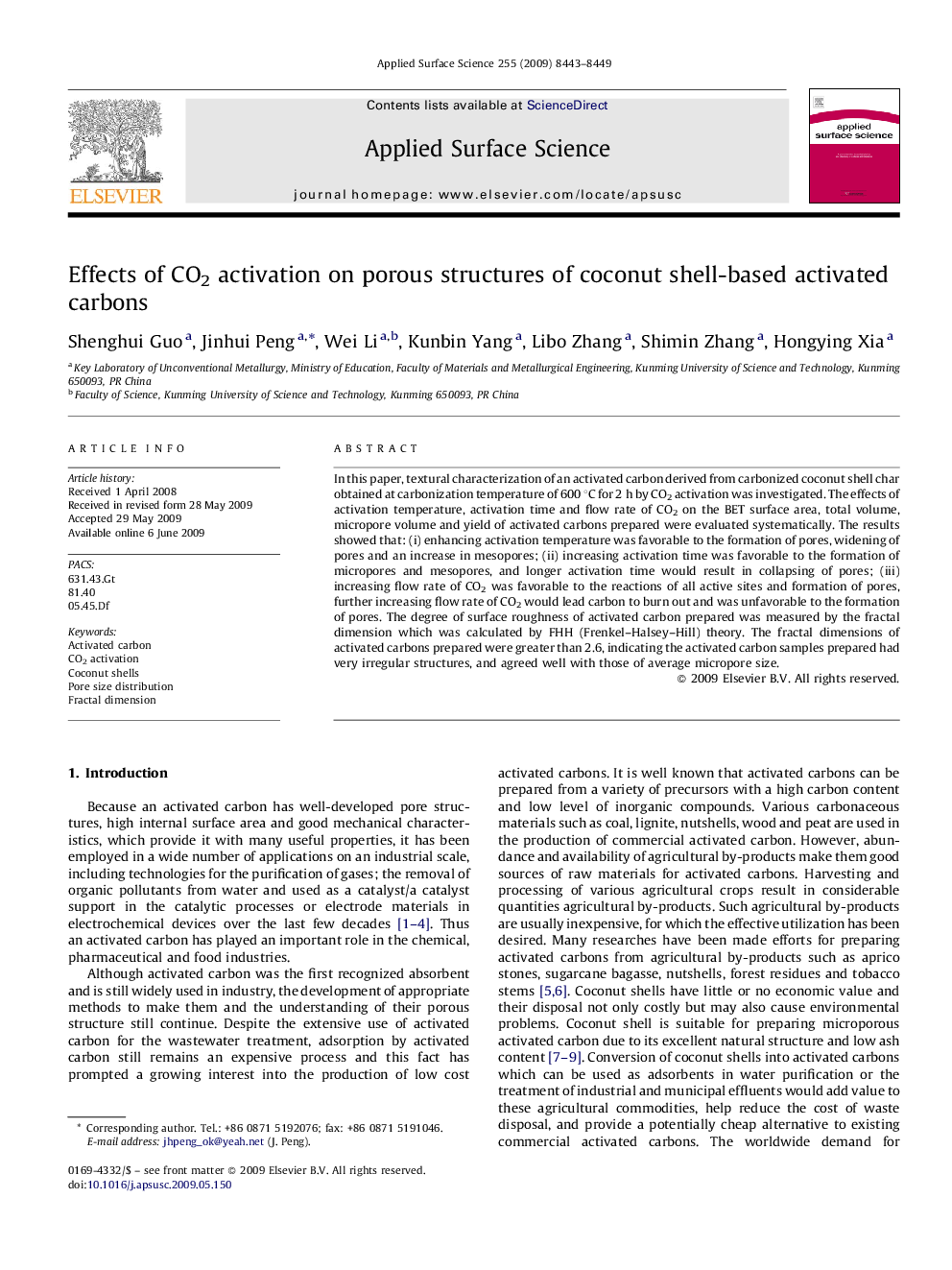| Article ID | Journal | Published Year | Pages | File Type |
|---|---|---|---|---|
| 5362019 | Applied Surface Science | 2009 | 7 Pages |
Abstract
In this paper, textural characterization of an activated carbon derived from carbonized coconut shell char obtained at carbonization temperature of 600 °C for 2 h by CO2 activation was investigated. The effects of activation temperature, activation time and flow rate of CO2 on the BET surface area, total volume, micropore volume and yield of activated carbons prepared were evaluated systematically. The results showed that: (i) enhancing activation temperature was favorable to the formation of pores, widening of pores and an increase in mesopores; (ii) increasing activation time was favorable to the formation of micropores and mesopores, and longer activation time would result in collapsing of pores; (iii) increasing flow rate of CO2 was favorable to the reactions of all active sites and formation of pores, further increasing flow rate of CO2 would lead carbon to burn out and was unfavorable to the formation of pores. The degree of surface roughness of activated carbon prepared was measured by the fractal dimension which was calculated by FHH (Frenkel-Halsey-Hill) theory. The fractal dimensions of activated carbons prepared were greater than 2.6, indicating the activated carbon samples prepared had very irregular structures, and agreed well with those of average micropore size.
Keywords
Related Topics
Physical Sciences and Engineering
Chemistry
Physical and Theoretical Chemistry
Authors
Shenghui Guo, Jinhui Peng, Wei Li, Kunbin Yang, Libo Zhang, Shimin Zhang, Hongying Xia,
